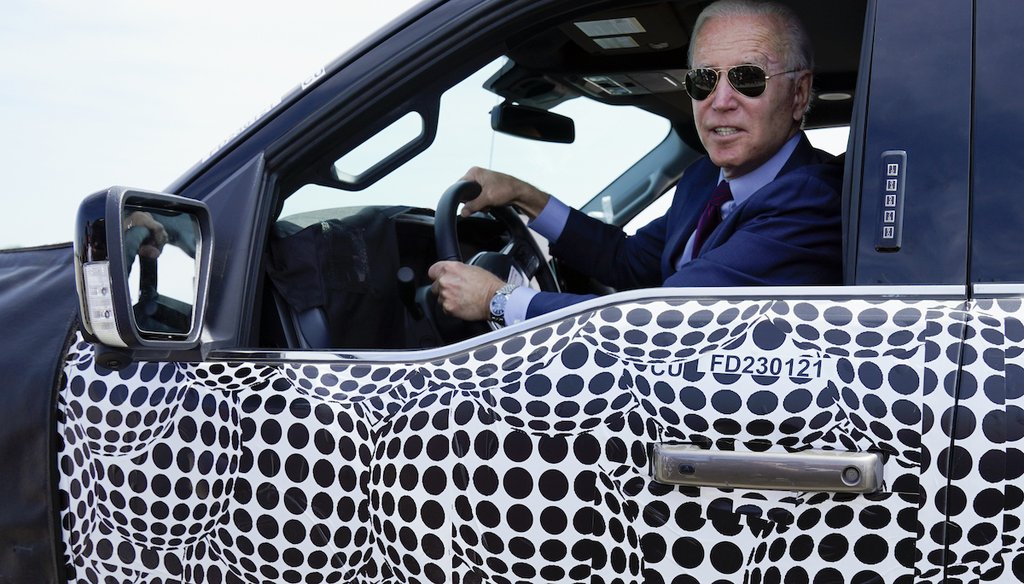Stand up for the facts!
Our only agenda is to publish the truth so you can be an informed participant in democracy.
We need your help.
I would like to contribute
U.S. formally rejoins Paris Climate Agreement

President Joe Biden stops to talk to the media as he drives an electric-powered Ford F-150 truck. Shifting to electric cars and trucks is key to reaching Biden’s carbon reduction goals. (AP Photo/Evan Vucci)
It's official. The United States is fully part of the Paris Climate Agreement.
On April 21, the administration submitted its plan to the United Nations to reduce greenhouse gas emissions by at least 50% from where they were in 2005 by the year 2030.
"We'll get there by investing in American workers, American jobs, American infrastructure, and building a stronger and more resilient economy," President Joe Biden said April 23.
That puts a positive light on the work that lies ahead. While several independent studies say Biden's targets are achievable, a host of challenges await.
Work by the University of Maryland's Center for Global Sustainability found that in two key areas — electricity generation and transportation — major reductions are possible. But the report highlighted that gains must be made across every part of the economy.
"Only through a combination of actions across all sectors of the economy will it be possible to achieve highly ambitious reductions approaching 50% or more," the March 2021 study said.
An analysis from the Asia Society Policy Institute said that between federal and state level actions, reductions could reach 54% from 2005 levels. The caveat was that perhaps only half that goal could be reached if Congress didn't support Biden's plans.
The spending required to develop renewable power, make buildings more efficient, ease the shift of workers into low-carbon producing jobs, and a host of other changes hinges on congressional approval — as do many regulatory changes that would span many industries.
Biden's infrastructure proposal could help progress toward those goals, but it faces an uncertain future.
"The big question is whether he will be able to overcome stiff political challenges," wrote Samantha Gross, the director of the Brookings Institution's energy security and climate initiative. "Congressional Republicans might be able to find something to like in supporting popular technologies, like clean energy or electric vehicles, but so far, that's not happening."
Nevertheless, Biden said he would rejoin the Paris Agreement, and he has.
We rate this a Promise Kept.
Our Sources
United Nations Climate Change, U.S. Nationally Determined Contribution, April 21, 2021
White House, Remarks by President Biden at the Virtual Leaders Summit on Climate Session 5, April 23, 2021
Brookings, Barriers to achieving US climate goals are more political than technical, May 10, 2021
University of Maryland Center for Global Sustainability, Charting an ambitious U.S. NDC of 51% reductions by 2030, March 2021
Asia Society Policy Institute, U.S. and China Climate Goals, November 2020
